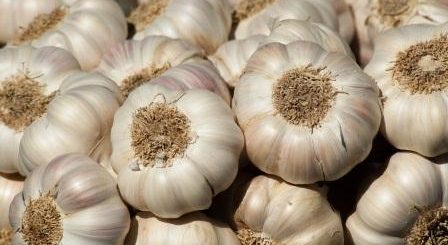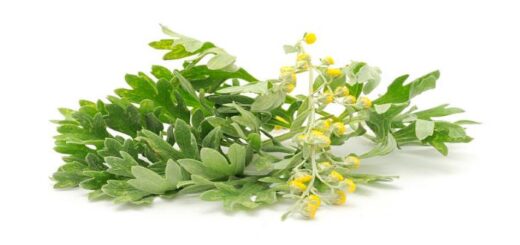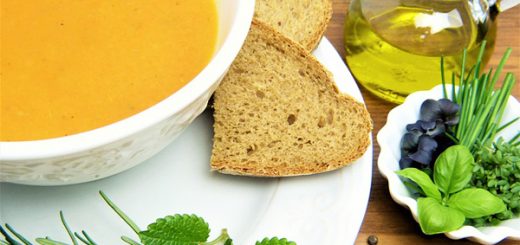How to Make Rosehip Tea? Benefits, What Is It Good For?

Rosehip is a plant known for its beautiful smell and color. It belongs to the Rosaceae family and is quite thorny. Their length usually varies between 1-3 meters. It has fragrant flowers with pink or white leaves that bloom in summer. At the end of the summer, the petals fall and the red or orange colored fruit ripens. Its ripe fruit is about the size of a cherry.
In the Middle Ages, rosehip was widely used to treat infections and colds. It can grow spontaneously on the roadside or in forest areas. Rosehip fruit is used to obtain vitamin C and rosehip oil. Rosehip oil is effective in reducing wrinkles and spots, reducing the negative effects of sun rays on the skin, and eliminating skin inflammation and acne.
In addition, rosehip fruit is used in making tea, marmalade, jam and sherbet. Rosehip jam, marmalade and sherbet are also effective in strengthening immunity. Rosehip fruit, although rare, can be eaten raw. In this case, the hairy and core part should be removed.
Rosehip is difficult to eat because of the many seeds in it. In addition, the hairs in its structure can cause irritation of your mouth. Many ways of consumption have been developed for this. Rosehip is consumed mostly by making marmalade or drinking tea in our country. In addition, it can be consumed by making sherbet or pestil.
For those who want to take advantage of the benefits of rosehip and also take less calories, rosehip tea is an ideal method to consume rosehip. Rosehip tea is loved for its taste, smell and magnificent color, and it is often consumed as winter tea, as it provides protection against diseases with its vitamin C content. When rosehip tea is prepared correctly, the vitamin C in it passes into the water. In other words, by choosing rosehip tea, you will get a large amount of vitamin C in it.
How to Make Rosehip Tea?
How to make rosehip tea İbrahim Saraçoğlu stated that rosehip tea is very useful:
- To make rosehip tea, the dried rosehip fruit is washed and poured into boiling water with two to three teaspoons of rosehip fruit in a glass of water.
- How many minutes is rosehip tea boiled? It is boiled for 10-15 minutes. Then the lid is closed and the rosehip tea is left for brewing.
- Rosehip tea has many different recipes. When preparing rosehip tea, the dried rosehip plant is generally preferred; but you can also use fresh or frozen rose hips.
- While making rosehip tea, besides the fruit, the leaves of the rosehip flower can be dried and added to the tea.
- However, the point to be considered when preparing rosehip tea is that the rosehip fruit is not exposed to high heat for too long.
- Because at high temperature, the vitamins in rosehip are lost and the nutritional value of rosehip tea decreases.
- Another issue is that aluminum cookware is not used.
- Rosehip in contact with aluminum may lose its vitamin C, and the color of rosehip tea prepared in this way may not be as desired.
- How to prepare rosehip tea? You can drink rosehip tea plain, sweeten it with honey or sugar, or prepare a winter tea with cinnamon, cloves or apples.
What Are the Benefits of Rosehip Tea? What Is It Good For?
Rosehip tea is rich in vitamin C. In addition to the high amount of vitamin C found in its fruit, rosehip contains different amounts of vitamins A, B and K. What is rosehip tea good for? What is rosehip tea good for?
- Is rosehip tea good for flu? Since rosehip tea contains a high amount of vitamin C, it is very effective in preventing diseases such as flu and colds, especially in winter.
- It has antioxidant properties. In other words, it ensures the removal of free radicals from the body, which cause various diseases and age-related cell wear.
- Rosehip tea is effective in relieving knee pain and joint disorders, removes inflammations and prevents their formation.
- Is rosehip tea good for the stomach? It also benefits from rosehip in solving stomach problems.
- Rosehip regulates stomach acid and is effective in preventing ulcer formation.
- Is rosehip tea good for constipation? Rosehip tea plays a role in solving intestinal problems.
- Rosehip tea is also effective in preventing various skin problems.
- It moisturizes the skin and reduces the appearance of scars and blemishes on the skin. It can also be used by making a rosehip tea mask.
- Once upon a time, rosehip tea was also identified with Tansu Çiller, and it was said that the prime minister of the time preserved his beauty with this tea.
- Rosehip tea helps to heal color changes and deformations caused by skin problems such as eczema more easily.
- Is rosehip tea good for hemorrhoids? It may be useful to consume rosehip tea for hemorrhoid complaints.
- Rosehip tea has a diuretic effect. Rosehip tea may also be beneficial for those with kidney stones.
- The answer to the question of whether rosehip tea is drunk in the evening is related to its diuretic effect.
- Because of this feature, drinking it late in the evening can reduce your sleep quality due to the need for the toilet.
- If you are worried about whether rosehip tea will interrupt menstruation, we can say that this tea is consumed during delayed menstrual periods.
- Rosehip tea is also believed to be beneficial as a menstrual cramp.
- Recent studies reveal that rosehip may be beneficial in the treatment of diabetes, lowering high blood pressure and preventing skin cancer.
- Rosehip tea is a good supplement for diabetics in terms of balancing insulin hormone problems, which are the cause of diabetes.
- Rosehip tea is also a powerful fighter in the fight against iron deficiency.
- Thanks to the rosehip content, the iron taken with food becomes easier and more efficient to be used by the body.
- Rosehip tea can relieve knee pain and joint pain.
- Rosehip can be effective especially in pain due to calcification.
Rosehip Tea Harms and Side Effects
- The benefits and harms of rosehip tea are important.
- Rosehip tea can have harms as well as benefits. Rosehip has no known harm in general.
- But it can create different effects in different bodies.
- Rosehip tea can be harmful, especially for those who have allergy problems.
- It can cause problems such as itching, rash and difficulty breathing in people who are allergic to rosehip.
- Overuse can cause stomach and intestinal problems. May cause vomiting, bloating and diarrhea.
Does Rosehip Tea Make You Weak?
- Among the properties of rosehip tea, its weight loss facilitating effect is popular.
- Rosehip tea helps to lose weight when used alongside diet and exercise.
- When rosehip tea is consumed, excess water and salt are excreted from the body, so it may be possible to lose weight with rosehip tea.
- In addition, rosehip tea accelerates metabolism, making it easier to lose weight.
- Rosehip tea provides not only the efficiency of the diet, but also its continuity.
- Body resistance may weaken in long and strict diets. At this point, rosehip tea increases your body resistance and makes the diet healthier.
- New research reveals that rosehip reduces blood pressure and cholesterol, and that it can also be used in the treatment of obesity.
What is the Calorie Value of Rosehip Tea?
- Calorie value of rosehip tea: There are about 162 calories in 100 grams of rosehip fruit.
- A cup of rosehip tea is about 2 calories. In other words, you can easily consume rosehip tea without worrying about calories.
- However, if you add sugar to rosehip tea, the calorie value will increase.
- We recommend that people who pay attention to their weight use rosehip tea without added sugar.
What Should Be Considered While Drinking Rosehip Tea?
- Although rosehip tea is a useful beverage, its ideal consumption is 2 cups a day.
- Does rosehip tea make you sleepy? Drinking more than three times a day can also be harmful.
- Does rosehip tea cause allergies? Since consumption of rosehip tea can cause an allergic reaction, those who are allergic should definitely get doctor’s approval before drinking rosehip tea.
- Can pregnant women drink rosehip tea? Women during pregnancy and lactation should always be cautious about the consumption of herbal teas.
- Does rosehip tea increase breast milk? Rosehip tea has no known harm to pregnant women and nursing mothers.
- However, since many hormonal changes occur during pregnancy and lactation, the bodies of pregnant and lactating women may react differently to rosehip tea.
- For this reason, the consumption of rosehip tea should be limited to one cup and a doctor’s approval should be obtained.
- Is rosehip tea given to babies? Rosehip tea can be given to babies in small amounts, but a doctor’s approval should be obtained beforehand.
- If you are wondering whether to drink rosehip tea hungry or full, this changes according to your consumption purpose.
- If you are going to drink to regulate your stomach acid, it may be more effective to drink on an empty stomach.
Rosehip tea should not be seen as a medicine and should not be used as a medicine. Since each person’s body is different, the effect of rosehip on each person may be different. For this reason, a doctor’s approval should be obtained before using it as a supplement in the prevention or treatment of a disease.











